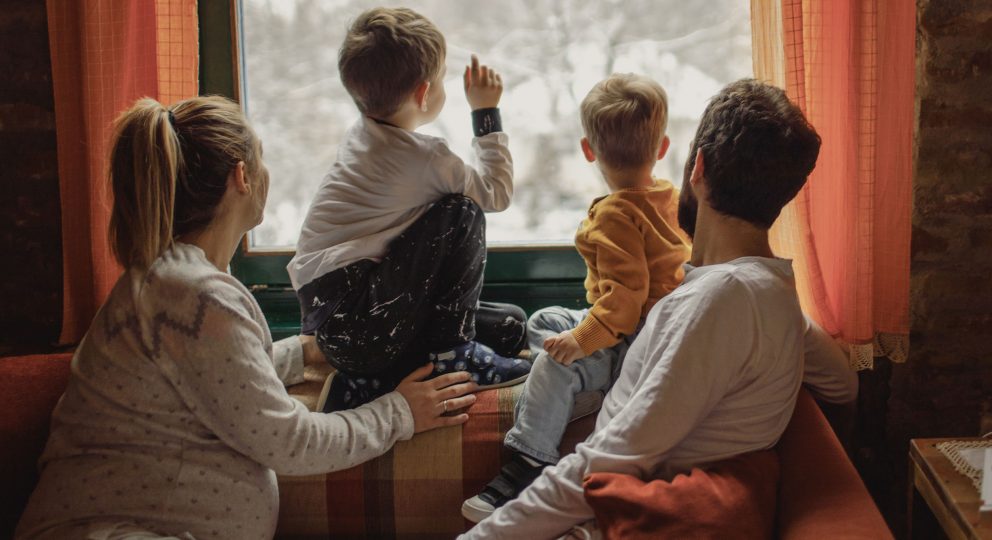What a year 2020 has been. We did not plan to have this kind of year and things continue to feel uncertain and unpredictable. There are many things in life that are uncertain and unplanned. When we become stuck in “That’s not fair” thinking or “Why did this happen to me” mindset, we run the risk of feeling stuck, increasingly anxious, and becoming angry about our circumstances.
As parents, caregivers, teachers, and adults, it is important to teach children the value of being adaptable to changing conditions. In fact, teaching them how to do this is a remarkable gift. The problem? What if you are not sure how to do it either? Our ability to teach others is limited by our own insight, willingness, and experiences.
Let’s start with a few important definitions so that you can feel better equipped to teach our next generation a healthier way to live.
Uncertainty avoidance is one of the five cultural dimensions presented by Geert Hofstede in his 1980 book on the subject “Culture’s Consequences.” He determined each culture is shaped by the way they view certainty vs uncertainty. Uncertainty is defined as a situation, outcome, or result that is unknown or unpredictable. Some people thrive and feel comfortable under these conditions. Others engage in uncertainty avoidance because they prefer to remain in situations that feel more comfortable. People who prefer high levels of certainty seek out stability, structure, boundaries, social norms, and rules that allow them to predict outcomes—thus, avoiding risks. Those who are okay with uncertainty are more flexible, adaptable, and embrace ambiguity. Which category are you in?
Here are a few tips to consider for yourself and to teach the kids in your circle valuable life lessons:
Work on having a flexible mindset
We can all agree that life can feel unfair, that things should work out for us, and that we should get what we deserve. However, this is not always the case. As a psychologist, I have heard far too often, especially from adults, a belief that if they work hard, they should receive a justifiable reward. Truthfully, we expect that if we do good, good things should be returned to us. Unfortunately, this is not always the case. I find that kids truly benefit from learning this lesson early. Here’s a scenario: A teen was a good friend to a peer, but that friend betrays them and gossips about them. You can connect with that teen by saying, “It feels really disappointing when you had the best intentions for your friend and it wasn’t returned. That really hurts. Sometimes people treat us the way we expect and other times they do not. I’m so sorry this happened to you.” Through your words, you are providing empathy, comfort, and a little dose of truth amid the disappointment. You are essentially helping them understand life doesn’t always work out the way we expect and that’s okay.
Reinforce the message that strength can be found in weakness
This is not about saying that it’s good when bad things happen or that we need tragedy to be a better person. Those messages can be damaging. Instead, teach children and teens the value of finding their voice and gaining their strength within uncertainty. I often use metaphors to bring this point home. It sounds something like this: “I remember one particular hot summer here in Texas when the grass was really brown and dry. A large patch of grass caught on fire. After the fire went out, as expected, the grass that caught fire was charred, burnt, and bare. Within a few days, new bright green grass started growing in the middle of the burnt grass. Isn’t that interesting? The new grass was actually healthier, more vibrant, and greener than the brown grass that surrounded it.” There are so many examples in nature and in our own bodies where strength can be found when we are at our weakest. When things change and there are unexpected shifts, these can be opportunities for growth. Growth occurs during pressure, stress, and being pushed beyond our limits. It is important to teach children this lesson. The field of posttraumatic growth talks a lot about this too.
We are not always going to experience comfortable feelings
Today, people have become very consumed by having “feel good” feelings with an avoidance of uncomfortable ones. They try their hardest to feel the “good” feelings as often as possible, while numbing out or avoiding the “bad” ones. As a pediatric psychologist, I find that children and some young adults (ages 7 to 22) continue to struggle because of this.
Here are some things they might say and how you can respond.
Child: “My friend disagreed with me in class. They must not like me. No one will ever like me.”
You: “That sounds tough. It sounds like you felt hurt by their comments. Having healthy discussions sometimes involves saying things from different perspectives. Although it’s hard to hear, how can you have a fun and healthy debate with others who have a different opinion than you?”
Teen: “What if I take my test and fail, then get kicked out of school and become homeless?”
You: “Hold on. Let’s slow down our thoughts. You feel scared about failing your test, but you know you have studied hard and will do your best. If you score poorly, you still have options. You can seek out help, get tutoring, talk to your teacher, and keep working hard. What option would you like to explore should you have an undesirable outcome?”
It is important to teach children and teens that when things about their world continue to feel uncertain, they can consider their options and move forward anyway. They can learn to engage in tasks and take risks, learn to embrace uncertainty, and establish a new set of boundaries and expectations from which to live. When these things take place, we can truly have a generation who can thrive even when things feel uncertain.










